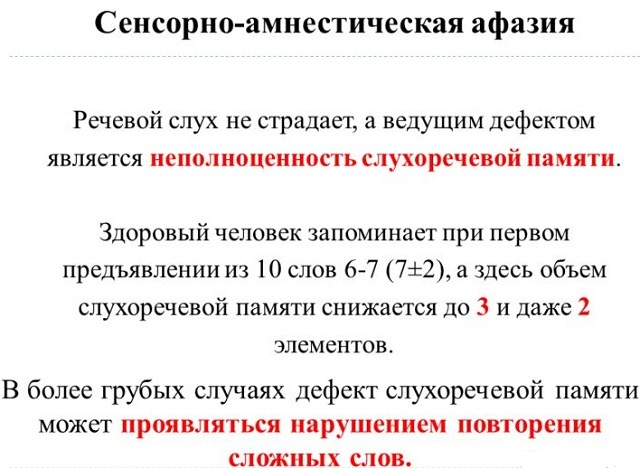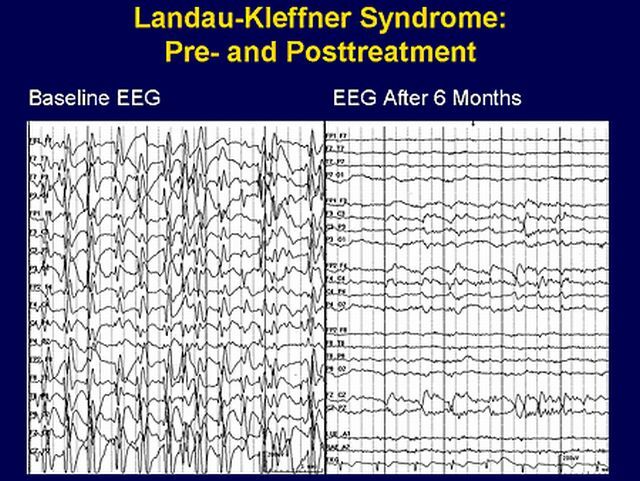 Anarthria is a disease associated with severe speech impairment. Unlike another speech disorder - alalia, the considered pathology affects only the phonetic system. It is a severe form of dysarthria.
Anarthria is a disease associated with severe speech impairment. Unlike another speech disorder - alalia, the considered pathology affects only the phonetic system. It is a severe form of dysarthria.
The ability of a patient to use grammatically correct expressions is preserved. The development of anarthria is interrelated with the defeat of the muscles of the face, tongue, larynx, after which the injured person does not have the opportunity to fully talk. This marks the beginning of the patient's development of fear.
Causes of the development of a disorder
Anarthria is a complex disorder caused by the defeat of certain areas of the brain( cerebellum, trunk, posterior frontal lobes).
Causes of the disease are often such pathological processes in the brain:
- hemorrhage, varying degrees of intensity of circulatory disorders of the brain;
- abscesses;
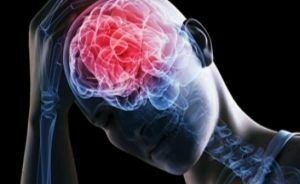
- craniocerebral trauma;
- is a tumor disease, as well as disorders that are accompanied by the destruction of the substance that forms the shell of nerve fibers - myelin;
- poisoning with poisons, heavy metals;
- infection with botulism;
- Fazio-Londe syndrome is a constantly progressive disease transmitted by inheritance.
Symptoms and complaints
The classic manifestations of anarthria are:
- The obscure speech pronounced in the nose, with noticeable zapping. The voice becomes hoarse. Often a person, realizing such a defect in his speech, prefers to communicate with the help of notes or generally remain silent.
- The patient can not pronounce sounds, syllables, words .
- Patients often complain of problems with ingestion of food - there is a high probability that the patient can choke with food or drink. This phenomenon is not an independent sign of anarthria, but often accompanies it.
- The psychological state can be described as a closed .
Types and severity of
Anarthria is classified as follows:
- , the mild degree of the differs from the rest in that a person can still hear sounds, syllables;
- in case of disease of moderate degree a person can pronounce only individual sounds;
- in the heavy case it is completely deprived of the opportunity to speak, its sound activity is completely lost.
Depending on the localization of the lesion of the nervous system, these pathologies are distinguished:
- Sluggish .Characteristic is the violation of a variety of nerves( glossopharyngeal, vagal, sublingual).
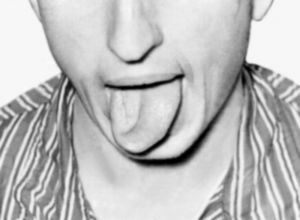
- The spasmodic form due to muscle paresis and bilateral paralysis. This form is associated with pseudobulbar syndrome.
- One-sided upper-tononeuronna , accompanied by paralysis or paresis of the muscles of one side of the face, due to the defeat of the central tortuosities of the brain.
- Ataxic - the forming factor is the disorders of the cerebellum.
- When subcortical nodes are affected, develops hyper- or hypokinetic anarthria.
- Mixed occurs due to various brain lesions.
Anarthria develops as a consequence of neurological diseases occurring in the body. Therefore, the treatment is aimed at their elimination, and after - speech disorders.
Diagnosis of
Anarthria is a complex disease requiring full diagnosis, consultations of a number of specialists. A detailed anamnesis of the patient must be made, heredity is studied, his complaints are analyzed, other transferred, as well as current diseases are noted.
Then a neurological examination is performed. The neurologist examines the features of reflexes, articulatory apparatus.
The otolaryngologist examines the pharynx, larynx, nose to exclude or, conversely, the detection of any pathological processes, 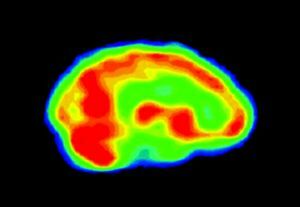 that affect human speech activity.
that affect human speech activity.
To assess violations of speech and sound, the patient should visit the speech therapist.
The neurologist, in order to identify the causes of brain disorders, will send the patient to such studies as CT and MRI.Thanks to the results obtained, it becomes known what neurological causes have affected the development of the disease.
Neuropsychologist will help the patient to cope with the stress arising due to the transferred disease, the inability to fully communicate. In addition, the patient can be assigned to other experts( genetics, oncologist).
Correction and treatment of
Treatment of anarthria occurs in two directions: medically and analytically.
The complex of measures, presupposing reception of medicines and directed on elimination of primary disease, includes:
- antibiotic therapy;
- the appointment of vitamin complexes to strengthen the immune system;
- stabilization of cerebral circulation and blood pressure;
- as well as surgical opening of purulent wounds, elimination of hemorrhages;
- and the passage of a course of physiotherapy.
Simultaneously with the above procedures, the patient attends classes with a speech therapist - this is necessary for the phonetic recovery of the  speech.
speech.
Often, for the treatment of such a disease, stem cells are used that can restore the brain: they take on the functions of damaged and improve the conductivity of the nervous membrane.
For the purpose of correcting the patient's mental state, he is prescribed sedation, as well as tranquilizers, due to the properties of which the stress will be less intense. The listed measures of drug treatment of anarthria do not contribute to the elimination of fear in the patient, but only reduce the degree of its severity.
Analytical treatment is an alternative option for the elimination of anarthria. Its advantage is that this type of therapy excludes taking medications - they are compensated by long conversations with a psychiatrist who will help the patient to conduct psychoanalysis and reveal the true cause of his phobia that are in the subconscious. The disadvantage of analytical therapy is its duration, sometimes reaching 18 months, and considerable cost.
Anarthria is complicated by the loss of a person's ability to communicate normally with others, which affects his life, causing irreparable psychological trauma. In the absence of medical care, the disease progresses rapidly - until the loss of speech activity.
With timely, comprehensive therapy, the prognosis is favorable, it is even possible to achieve significant success. However, it is almost impossible to completely cure the disease, especially if the visit to the doctor was postponed for a long period.
A healthy lifestyle is our choice!
Disease prevention is the responsibility of a healthy way of life - quitting smoking, consumption of alcoholic beverages. 
Sufficient attention should be paid to physical training.
important to observe the mode of the day, including adequate sleep( 8 hours), chetyrehrazovoe balanced diet, taking long walks in the fresh air.
At occurrence of diseases associated with disruption of the body's systems, blood pressure, metabolic disorder, should immediately contact a physician held timely, proper treatment.


